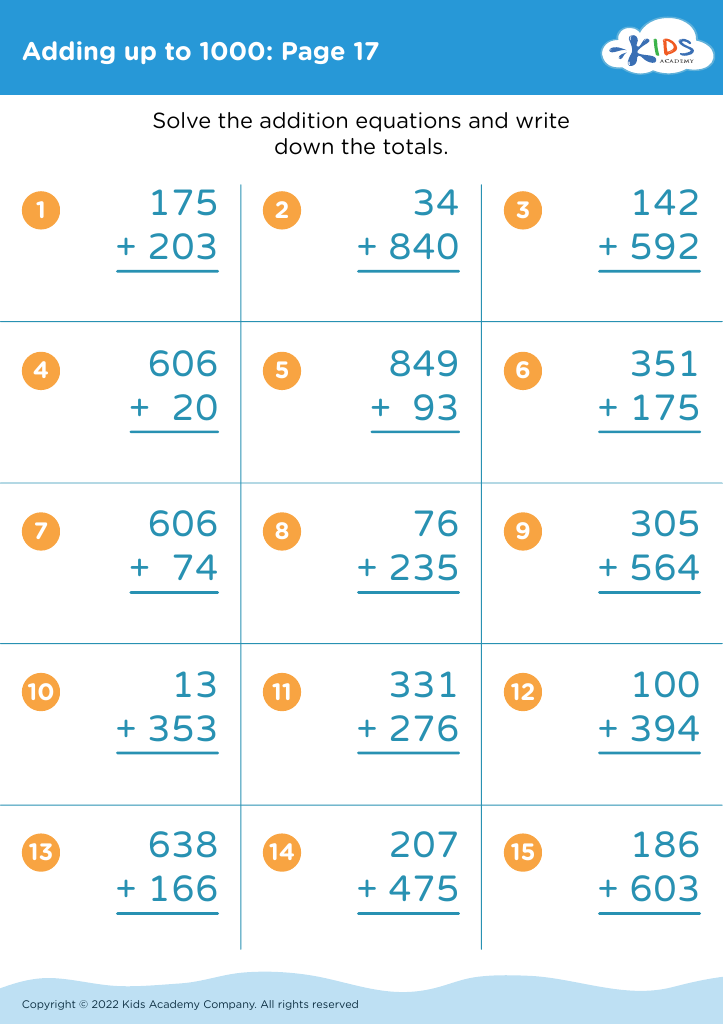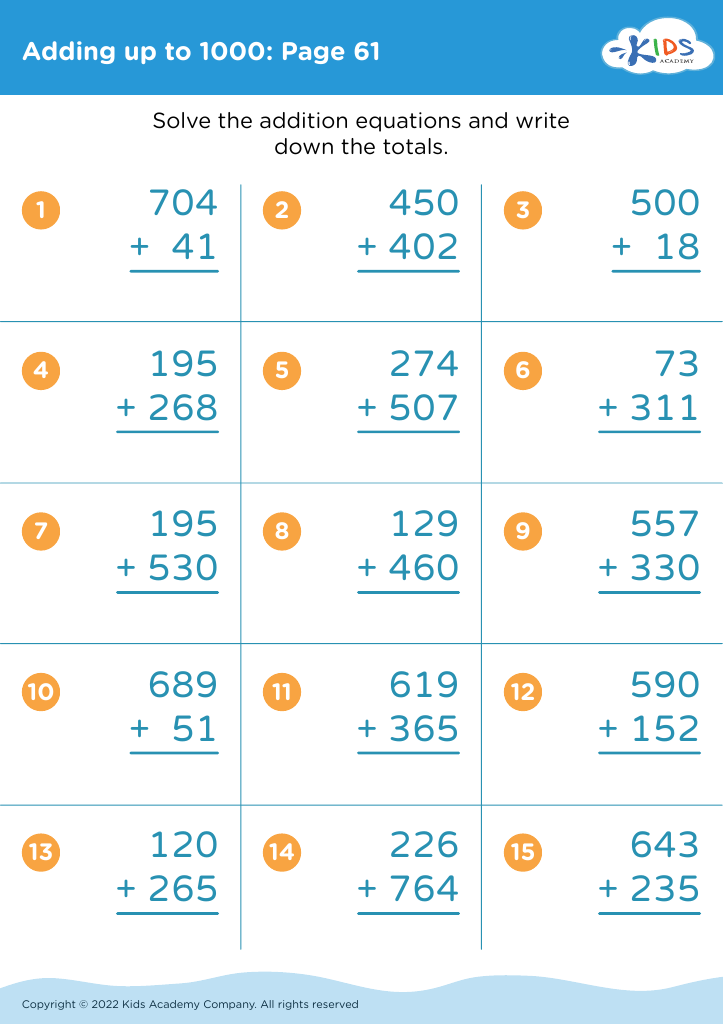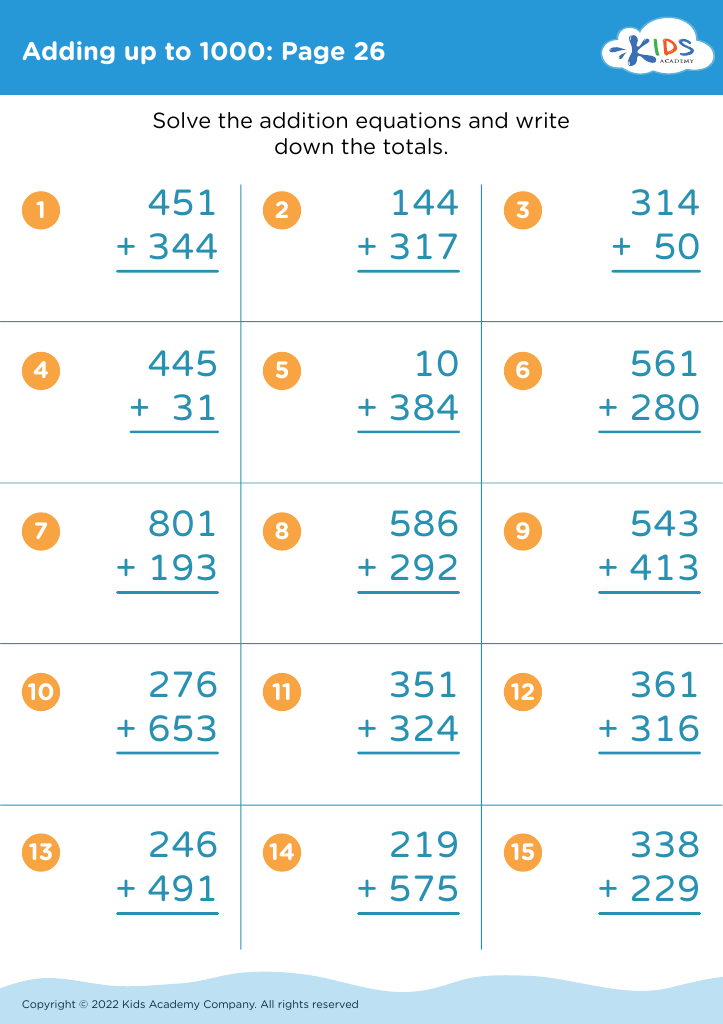Basic Math Skills Adding up to 1000 Misc Worksheets
3 filtered results
-
From - To
Explore our "Basic Math Skills Adding up to 1000 Misc Worksheets" to engage young learners in mastering addition concepts. Perfect for early elementary students, these printable worksheets offer diverse exercises that build a strong foundation in basic arithmetic. By incorporating fun themes and practical problems, children can practice adding numbers up to 1000, enhancing their math fluency and confidence. Each worksheet is designed to support gradual learning progress, making math enjoyable and approachable. Ideal for classroom activities or additional practice at home, these resources ensure comprehensive skill development in a structured yet exciting manner.
Basic math skills, especially the ability to add up to 1000, are crucial for young learners and should be a priority for both parents and teachers. Mastery of these fundamental concepts lays the foundation for all future mathematical learning and practical applications in daily life. Understanding addition up to 1000 helps children build number sense, a critical skill that involves comprehending number relationships and patterns, which is essential for more complex mathematical operations such as subtraction, multiplication, and division.
Additionally, basic math skills bolster cognitive development by enhancing problem-solving abilities and critical thinking. When children engage in adding numbers, they practice logical reasoning, gain confidence in their computational abilities, and develop perseverance—all attributes that contribute positively to academic success across subjects.
Mastery of basic mathematics also has immediate real-world applications. From managing money, understanding measurements, to time management—being proficient in these skills is indispensable. When parents and teachers emphasize teaching basic math skills, they ensure that children are not only prepared for more advanced studies but also become competent, capable individuals in everyday tasks. Moreover, fostering a positive attitude toward math at an early age encourages long-term educational engagement and curiosity, paving the way for lifelong learning and success.













